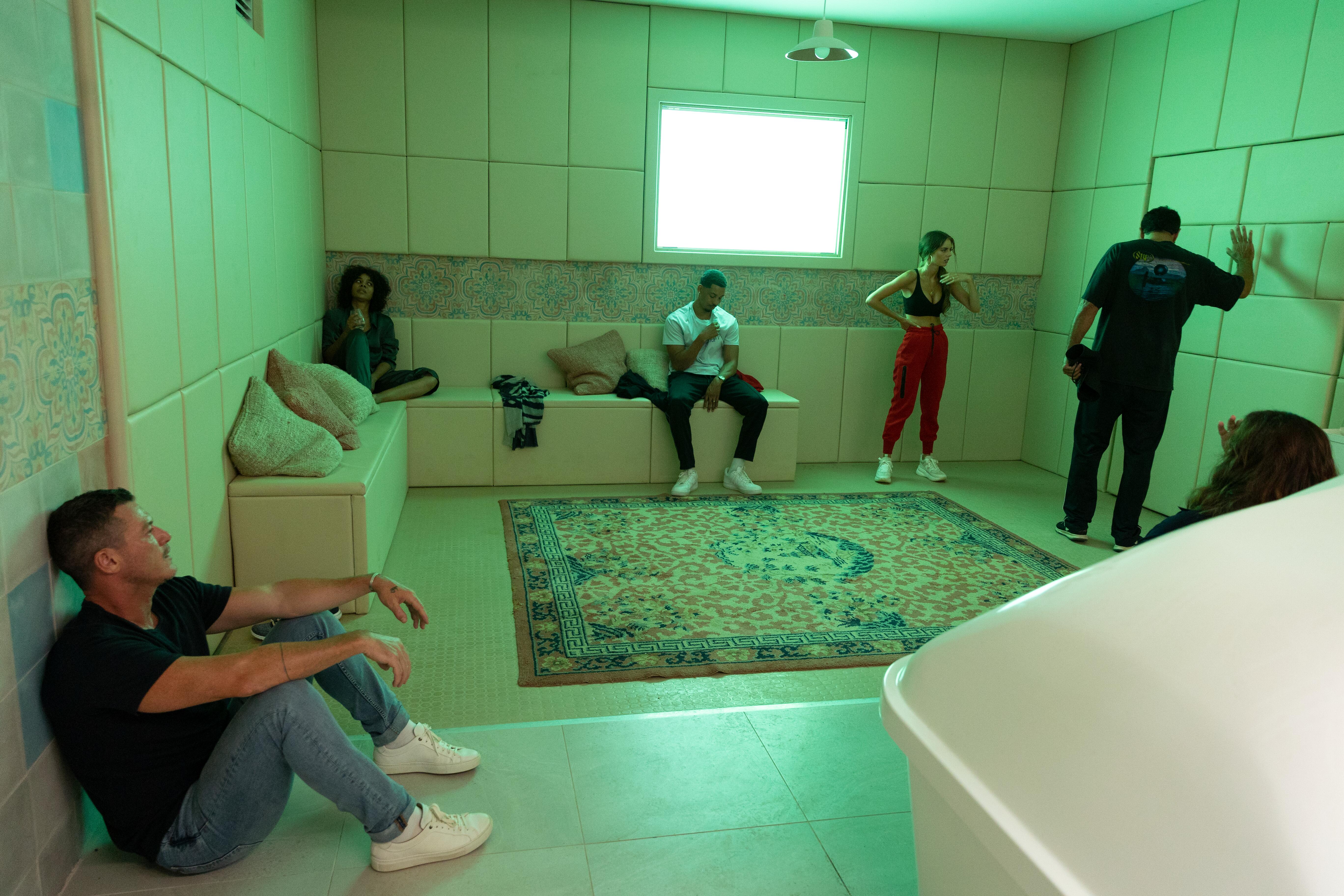What to Watch Verdict
Nonsensical in places, but 'Nine Perfect Strangers' is bolstered by its cast and strong emotional moments.
Pros
- +
*Really strong performances.
- +
*Emotional and funny scenes ensure it is entertaining even when it doesn't make sense.
- +
*An ideal end-of-summer show full of twists.
- +
*Cinematographer Yves Bélanger captures the surreal beauty.
Cons
- -
*Two of the couples are still sidelined and this has been a problem throughout.
- -
*The ending is far too neat for everything that went down.
This post contains spoilers for Nine Perfect Strangers "Ever After.”
Read our latest review here.
A fairytale ending is not what the guests at Tranquillum House expected from this unique wellness retreat, but nothing about Nine Perfect Strangers has been predictable. It hasn’t always made the most sense either and certain characters were not as fleshed out or clearly defined as others, however, this trippy ride has been an entertaining watch to close out the summer.
This group didn’t even make it to the 10 days they paid for and after the chaotic climax, it is probably for the best that their treatment finished ahead of schedule. Delilah (Tiffany Boone) followed through with her promise to call the cops, but not before Masha (Nicole Kidman) had finally found success in the experimental psilocybin therapy. The penultimate episode ended with the bombshell that Carmel (Regina Hall) was behind both the threatening text messages and Masha’s shooting. While it wasn’t entirely clear if Masha wasn’t simply hallucinating the latter is quickly confirmed when Carmel explains she didn’t intend on pulling the trigger and offering a reason why she did. Masha’s dismissive attitude made her so furious while encapsulating how insignificant she felt in comparison to the woman her husband was sleeping with. Carmel reflects that she was a very good makeup artist (hence, her disguise) among other things until her ex stole her confidence.
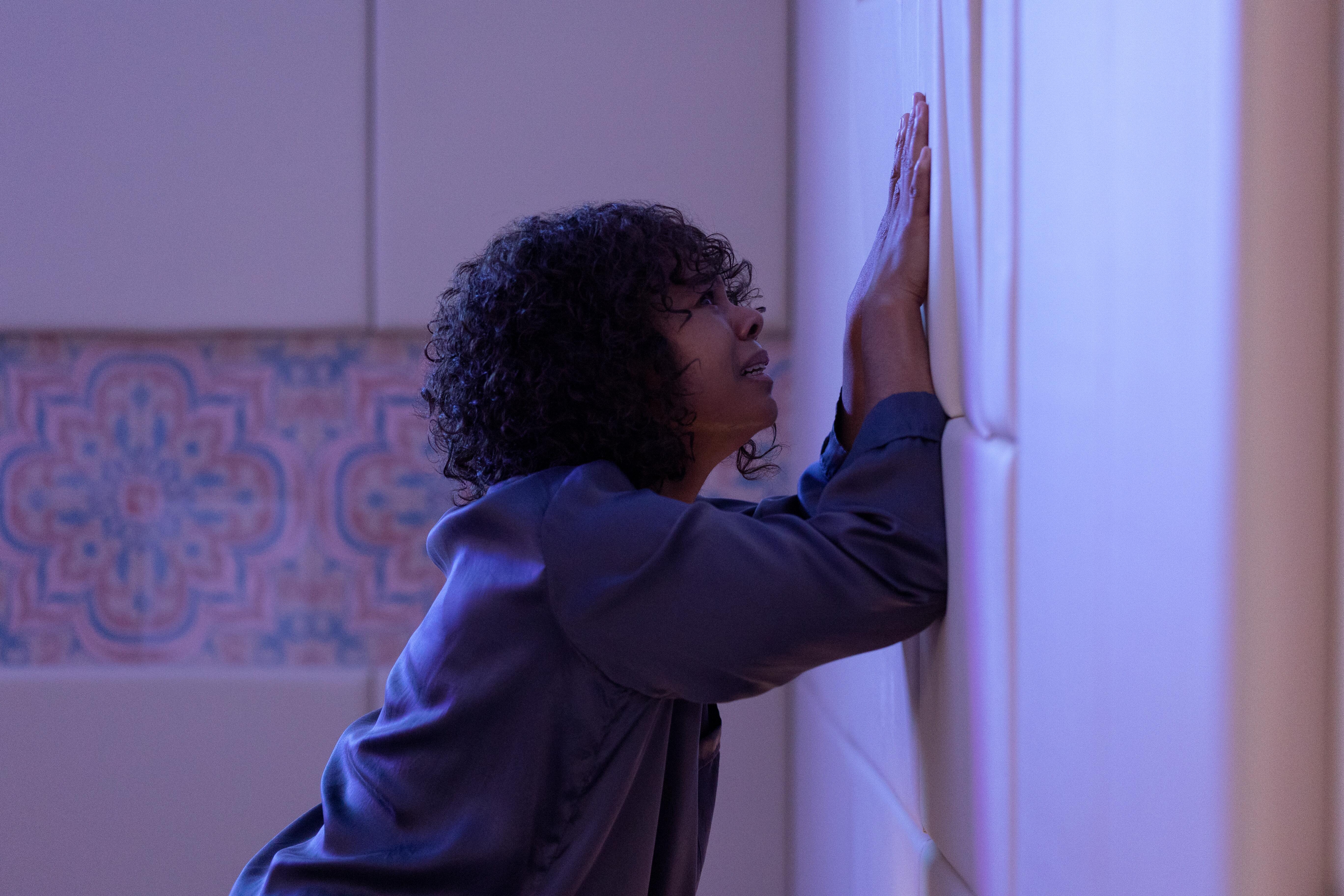
Rather than dismiss her again, Masha listens — even if she is distracted by the ticking clock of being on psychedelics — and offers her forgiveness. “I don’t forgive myself,” is Carmel’s response and she doesn’t believe this place has fixed her. When Masha tries to placate her by explaining Tranquilum House only exists because Carmel shot her, this also doesn’t work so Masha resorts to drastic measures. Carmel wakes up in a sensory deprivation tank, which only elevates her claustrophobia. As the lights change color, she does feel peace with images of her daughters, and Regina Hall really sells this shift in mood. Unfortunately, she is not permitted to leave the padded room so the calming effect is quickly replaced by fury heard by the rest of the guests (bar the Marconis).
“Cut out the malarkey,” Napoleon (Michael Shannon) tells Masha when she finally joins them out in the woods. While she was dealing with Carmel, Lars (Luke Evans) took it upon himself to fill them in regarding Masha’s true motives, and the dangers of what they have ingested. It is probably not best to tell people on drugs that the dose they took killed someone else, which no doubt contributes to Napoleon’s nose bleed freakout. Masha explains it is not acceptable as a therapist to reveal too much about her personal and yet she thinks it is okay to dose smoothies without consent. These wobbly ethics cause some consternation, however, she wins them over when she repeats “I am you” and explains she is also stuck in her grief.

Letting go of the past is the overall theme of the finale and this is no more apparent than during the Marconi scenes. Oscillating between ludicrous and touching — I couldn’t help but get teary — the interactions with Zach (Hal Cumpston) are a method of examining their deepest regrets. For Napoleon, it is the alarm he ignored that repeatedly plays in his mind but really his sorrow is connected to not comprehending his son was in pain. Throughout his time as a teacher, he has been singled out for the number of young men he has helped out and he is broken by the idea that he failed the one person he should’ve protected. Heather’s (Asher Keddie) focus is on the belt she bought that he used and Zoe’s (Grace Van Patten) guilt centers on the fight they were in the middle of. She explains that she knew something was up but didn’t say anything as she didn’t want to lose the game they played when they weren’t speaking.
There is no answer Zach can give them that will be satisfying because this isn’t him and they cannot know the reasons beyond the versions playing in their head. Blaming themselves or each other is only going to cause more pain and they need to separate the person Zach was from the day he died. For all the chaos and trippy moments, Masha’s methods are successful, and there is a sense of calm over the three Marconis. There is also a very funny line reading from Michael Shannon when he comments he is still tripping and is also thirsty.
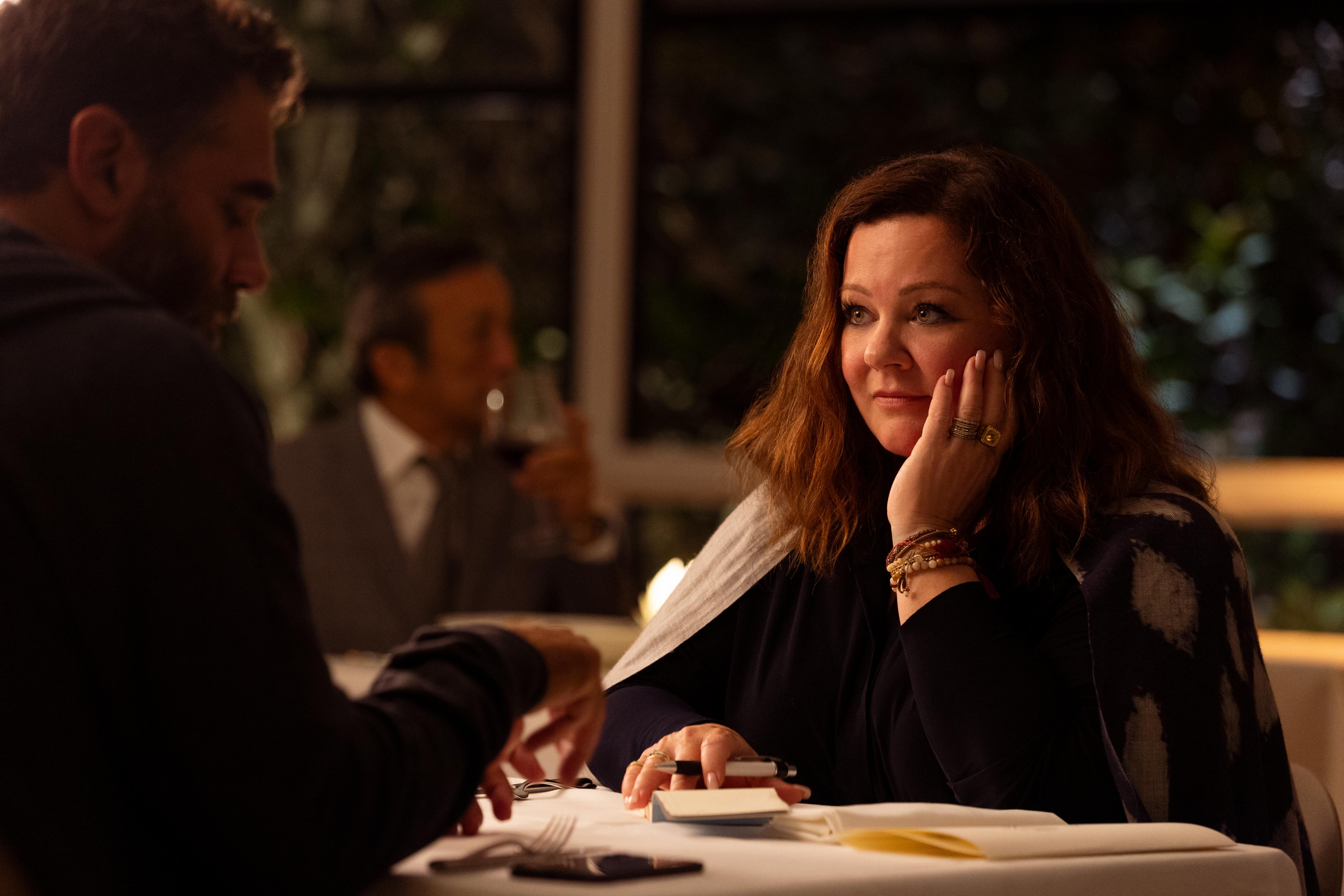
The matter of Masha’s daughter hangs in the air and Zoe proves she is the key to all of this when she spots a falling snowflake in the Californian sun. What follows is her guiding Masha to the idyllic location beneath the tree and a hallucinated snowstorm separates the two. Director Jonathan Levine and cinematographer Yves Bélanger capture the surreal beauty of this situation before the snow disappears and her daughter appears. In a similar way to how past Masha dressed in black with shorter hair intercuts with an image of the ethereal present-day version, the past tragedy, and present tranquility are spliced together.
When the police turn up it is dark — time moves at a varying pace here — and we don’t see Masha cradling thin air. Instead, a shot of her back allows a moment to say goodbye before she is taken into custody. Her wish to see her child again is achieved and the moral of this story is to trust everything this woman says, which is a dubious message to impart. Not only did Masha drug nearly everyone without their consent (Jess points out that she did agree before drinking her first laced smoothie), but she also locks the other six guests in a room and makes them think they are going to die. Again, the Yelp score is going to be impacted by this.
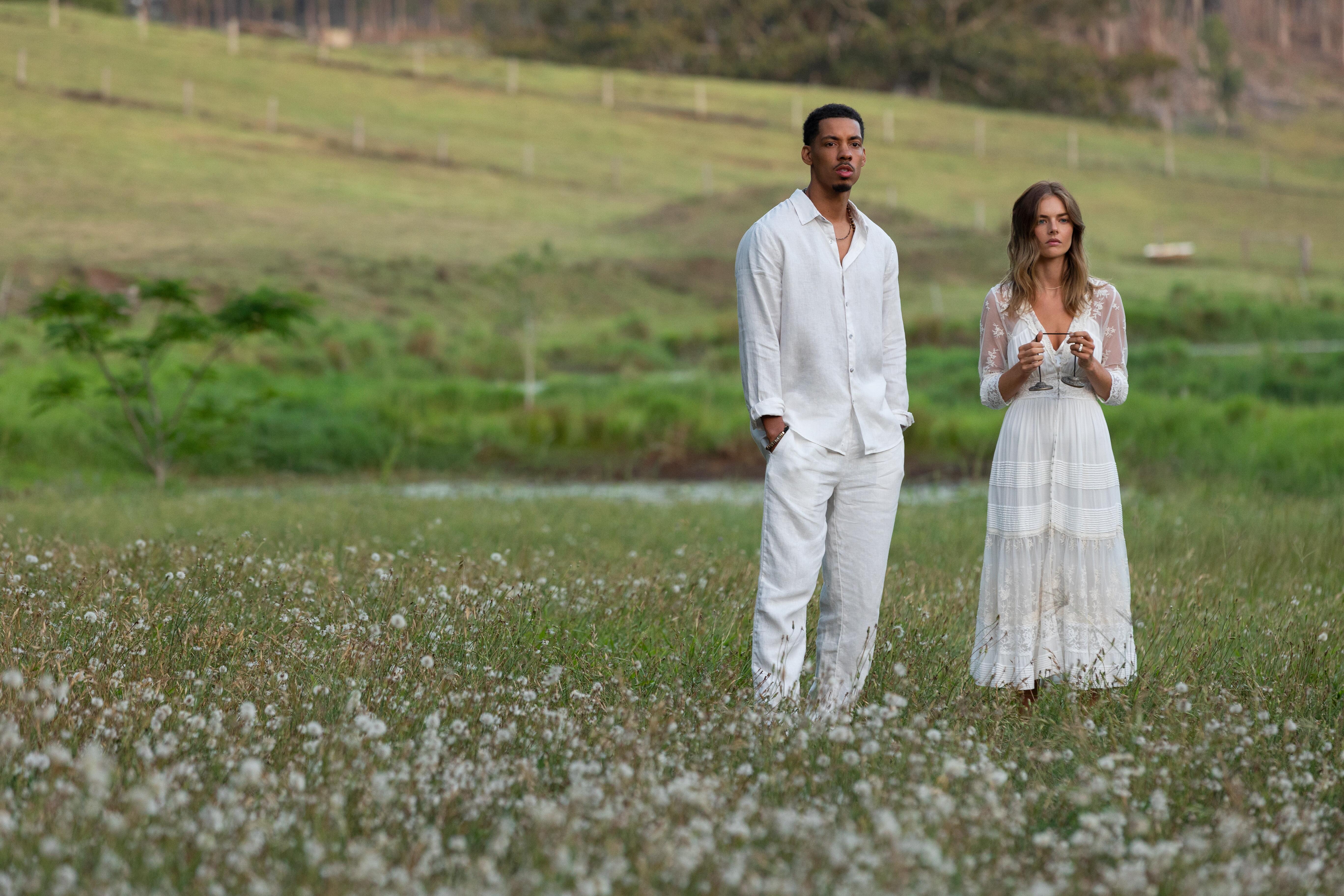
There is a lot to cover in this final hour and the action is split between convening with the dead and the Carmel situation. Maneuvering all the players involves some fun moments including Frances (Melissa McCarthy) and Tony (Bobby Cannavale) reconciling in a very sweet scene that doesn’t need the nods to the real-world pandemic by using terms like “social distancing” and “lockdown” — this knowing wink is distracting. Frances explains that his lovely demeanor set off every bell, red flag, and whistle she has constructed throughout her life and once again there is an ease and humor to their crackling chemistry. He proposes dinner at the nearby Four Seasons and Frances seizes at the opportunity — and gently ribbing him about his lack of pants. They run into Ben (Melvin Gregg) and Jess (Samara Weaving) who continue to flitter in and out making funny comments before disappearing again.
One big letdown throughout this series is how sidelined this couple and Yao (Manny Jacinto) and Delilah have been. It doesn’t go unnoticed that three out of these four characters are played by people of color, and their romantic storylines are never given the same consideration or depth as Tony and Frances. While I am the captain of the latter ship, I would have loved to see more from Ben and Jessica beyond funny asides and being defined by their lottery win. Sure, they find peace with the roadblocks in their way but the story doesn’t scratch the surface beyond this issue (along with Jessica’s preoccupation with how she is perceived). Weaving dials into the humor — including her police statement and comments about hooking up in her car — but that is all in her delivery rather than the words on the page. The choices made by Yao (Manny Jacinto) and Delilah are also all over the place, which includes the hook-ups they both had with their boss — a storyline that was there just to add some scandal and nothing more. Yao appears to regret his choices by the end and the couple remains together but this show has done nothing to make a case for this pairing.
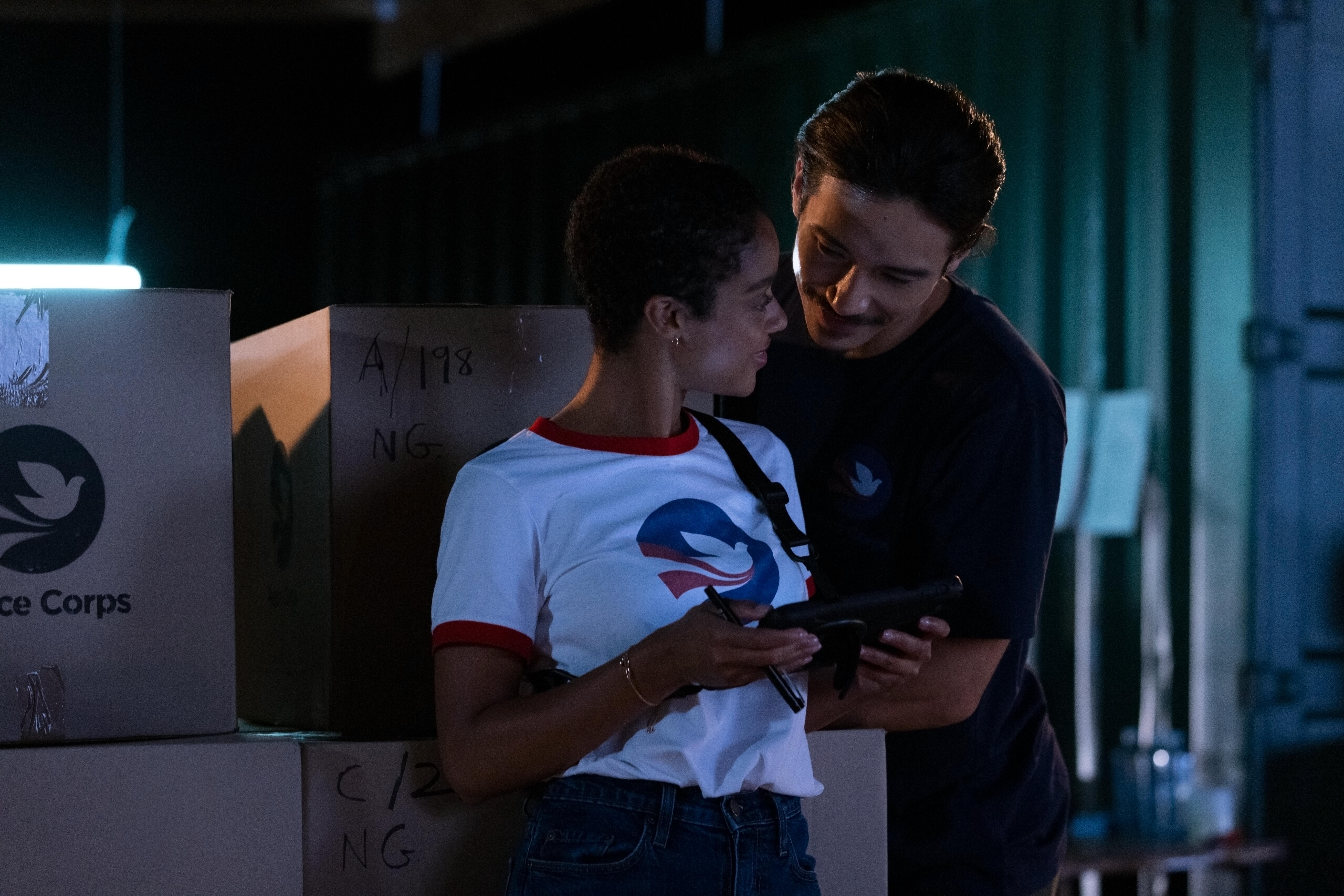
The same is not true for Tony and Frances who remain a team after they discover all of their cars are missing and hear a subsequent scream. When they discover Carmel is locked inside, Frances immediately goes to confront Masha with Tony in tow. Of course, Masha ends up locking the six of them — Lars felt weird filming such the Marconis personal experience — in with Carmel. The conversation that follows is Nine Perfect Strangers at its best as it makes use of the ensemble with callbacks to Lars’s baby dream and a fun Tony riff on this when he says he wants a baby with his ex Ray. Jess essentially wants to be a Girlboss and Ben craves being around people again rather than isolated by wealth. Carmel wants to let go of her past and Frances feels grateful for the experience as eight days ago she didn’t know Tony and now she can see herself giving him a key to her house. She is less grateful when a fire is simulated and tells Yao “fuck you” when he explains the thought behind the treatment. She obviously gets over this mood pretty quickly as she tells the police that she was the one who locked them in by mistake — to berate Yao but forgive the white woman is not a good look.
Everyone rocks up to the tree in time to see Masha get arrested and the police have the difficult job of interviewing the probably still high guests. “She gave me my brother back,” is Zoe’s word on what happened and Lars won’t be sharing his footage without contacting his attorney and editor first. A protective circle forms around Masha because they are all better for this experience. Again, a weird message to leave us with. Frances and Tony do make it to dinner at the Four Seasons — the dinner jacket joke about his hoodie is very sweet — and order everything they have been craving. Inspiration strikes Frances and it is never not corny when an author character writes a book with the same name as the show (looking at you, Gilmore Girls).
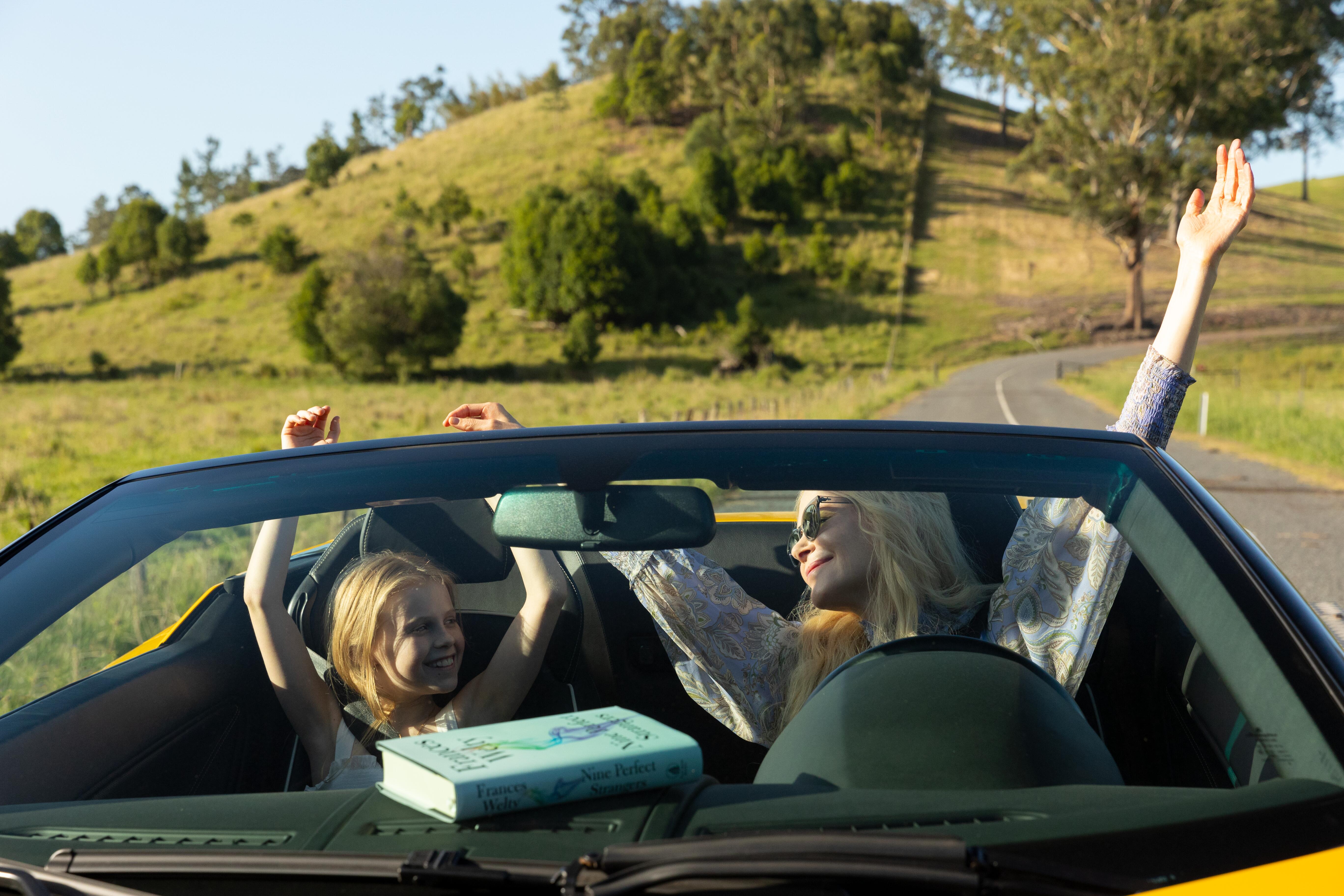
A montage of what happened next reveals everyone got a happily ever after and this solution is neat while the series as a whole has been messy. Carmel is a therapist preaching the notion of forgiving yourself and while I am glad to see her thriving, this suggests all she needed to solve her anger issues was self-reflection. Lars and Ray have a baby and when the camera pans across the room we see a New Yorker cover with an illustrated Masha and a headline proclaiming “Psychedelics to the Rescue.” Good on Lars for getting this cover story but my nit to pick here is that The New Yorker covers are never directly related to the main article — nor do they have headlines like this. I do want to read what I am sure is quite the page-turner. Delilah and Yao are now working for the Peace Corps because sure, why not? And our other sidelined couple are running Tranquilum House. Yes, Jess is a boss and Ben is getting to meet a variety of people but this is also nonsensical. Meanwhile, Tony has reconciled with his daughter, is sporting a mustache (and pants!), and is very happy with Frances and their puppy. The Marconis are together and look at peace, although we don’t get to see what is in store for their future beyond this car ride.
It is the final image that makes zero sense in reality as Masha is driving Ben’s missing Lamborghini with her daughter in the passenger seat (and Frances’s book on the dashboard). Everyone got what they desired from this retreat and while I can get on board the sentiment that letting go of the past is helpful, I can’t ignore the fact that this conclusion isn’t completely earned. Not everything about Nine Perfect Strangers worked, and it often felt like I was microdosing watching these events unfold. What made this experience one I would recommend is the cast who deftly handled the shifts in tone and a story about the wellness industry that was never predictable — even as someone who had read the book. Just don't accept a smoothie from a well-meaning blonde woman with a meandering Russian accent.
Emma Fraser spends most of her time writing about TV, fashion, and costume design; Dana Scully is the reason she loves a pantsuit. Words can also be found at Vulture, Elle, Primetimer, Collider, Little White Lies, Observer, and Girls on Tops. Emma has a Master’s in Film and Television, started a (defunct) blog that mainly focused on Mad Men in 2010, and has been getting paid to write about TV since 2015. It goes back way further as she got her big start making observations in her diary about My So-Called Life’s Angela Chase (and her style) at 14.
